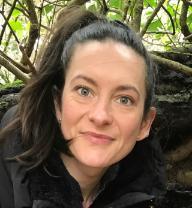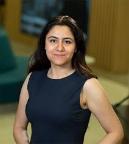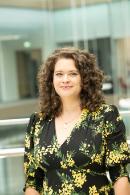About

This year, the Lovelace-Hodgkin Symposium on AI Ethics focuses on Responsible AI & Education, bringing together leading voices from public policy, education, government, academia, research, & the student voice to explore how artificial intelligence can be developed, incorporated and used responsibly in lifelong learning.
On Day 1 our first session will explore what responsible AI really means from a philosophical and technical perspective. In Session 2, we will deep dive into how responsible AI impacts learning, from early education through academia to public engagement, with a focus on policy, co-creation and dialogue. Moving into lifelong learning, our final session will focus on responsible AI in public funding, research and employment.
Day 2 will focus on collaboration, with a practical workshop that distils discussions from Day 1 and provides the framework for the expert panel of university policy makers, aimed at generating actionable ideas and institutional priorities.
This free, in-person event is hosted at the University of Glasgow’s Advanced Research Centre (ARC) on Day 1 and the Glasgow University Union (GUU) on Day 2. It is open to everyone interested in shaping a more responsible future for AI in education, whether you're a student, educator, technologist, policymaker, or simply curious.
Join us! The symposium will take place in person at the University of Glasgow’s Advanced Research Centre (ARC) on Day 1 and the Glasgow University Union (GUU) on Day 2. It is free and open to all: staff, students and members of the public. This inclusive approach reflects our commitment to making conversations around AI accessible and enriched by a wide range of perspectives and lived experiences.
For a more detailed programme and to learn about our exciting lineup of speakers, please visit our programme page.
The Lovelace-Hodgkin Symposium is financially supported by the Centre for Data Science and AI, University of Glasgow and LearnSci.

Dates: 2nd to 3rd October 2025 at the Advanced Research Centre (Day 1) and the Glasgow University Union (Day 2).
You can book your tickets using this link.
To ask a question or to join the mailing list, please email us here.
You can also tweet us @LHSymposiumAI or using #glasgowAIethics
Meet the team
 Dr Ciorsdaidh Watts (Co-creator of the Lovelace-Hodgkin Symposium)
Dr Ciorsdaidh Watts (Co-creator of the Lovelace-Hodgkin Symposium)
Hi. I’m Ciorsdaidh (pronounced Kirsty, it’s a Scottish Gaelic name) and I work as a Senior Lecturer in organic chemistry at the University of Glasgow. My background is in medicinal chemistry, particularly cancer research. I also love teaching, having a particular interest in technology-enhanced learning. In 2025 I co-created the MOOC, AI Ethics, Inclusion & Society that is available online via FutureLearn. I am also a LearnSci Digital Champion, having worked with this partner industry to develop and deliver online, interactive lab learning across undergraduate teaching in chemistry.
I am also an advocate for the inclusion of ethics within scientific discourse and higher education, and for this reason, one of my role models in chemistry is Dorothy Hodgkin. Not only did she pursue and achieve excellence in her field, she also considered real people and their experiences and was a proponent of social justice and equality throughout her life. I believe it is essential to think critically about any emerging technology and consider the possible impacts on society, especially marginalised and minority groups. As a mother of two gorgeous children (one of whom lives with significant disabilities), as a scientist and human, questions of inclusion, equality, and responsible AI in education are important to me. You can follow me on X/Twitter by looking for my @Ciorsdaidh handle.
 Dr Lydia Bach (Co-creator of the Lovelace-Hodgkin Symposium)
Dr Lydia Bach (Co-creator of the Lovelace-Hodgkin Symposium)
As the Equality, Diversity and Inclusion Officer within the College of Science and Engineering, I am passionate about improving my work environment, making it inclusive for all irrespective of their background. I see myself as an agent of change, leading organisational and cultural transformation by understanding data, highlighting disparities, encouraging dialogue and setting up initiatives on crucial equality issues.
I see AI as both a tool and a challenge in the pursuit of equality and diversity within academia and beyond. While AI has the potential to enhance accessibility in education and personalise learning, for example, it also poses ethical dilemmas and risks exacerbating existing inequalities. The Lovelace-Hodgkin Symposium will be an opportunity to consider the importance of ethical considerations and inclusive practices in the development and use of AI across society. My hope is that we can gain a greater understanding of how we can use AI as a force for positive social change to create a more equitable inclusive society. You can follow me on Twitter/X by searching for @LyLuBach.
Prof Ana Basiri (Director of the Centre for Data Science and AI)
I am the Director of Centre for Data Science and AI at the University of Glasgow. I hold a Chair in Geospatial Data Science and a UKRI Future Leaders Fellow. I am also leading an interdisciplinary team working on developing theoretical and applied solutions that consider unavailability and biases in data as useful sources of data to make inferences about the underlying reasons that caused missingness or biases. My Twitter/X handle is @AnahidBasiri.
of Glasgow. I hold a Chair in Geospatial Data Science and a UKRI Future Leaders Fellow. I am also leading an interdisciplinary team working on developing theoretical and applied solutions that consider unavailability and biases in data as useful sources of data to make inferences about the underlying reasons that caused missingness or biases. My Twitter/X handle is @AnahidBasiri.
Dr Sarah Henry (Manager: Centre for Data Science and AI)
I received my PhD from the University of Glasgow in Molecular Biology and worked as a postdoctoral researcher in the UK and US on artificial photosynthesis.
Following a move to Scottish Enterprise as a grant appraisal officer, I returned to University of Glasgow to manage a core facility in mass spectrometry, nucleic acid sequencing and informatics. I then resumed her analytic career by working at Scottish Water as a data modeller before taking the manager role at the Centre for Data Science and Artificial Intelligence.


